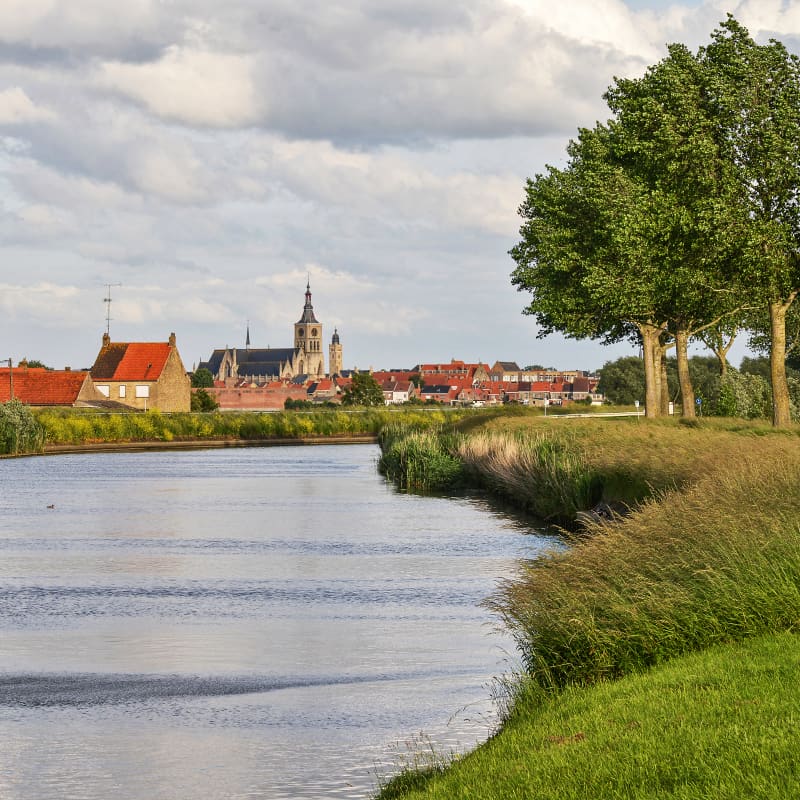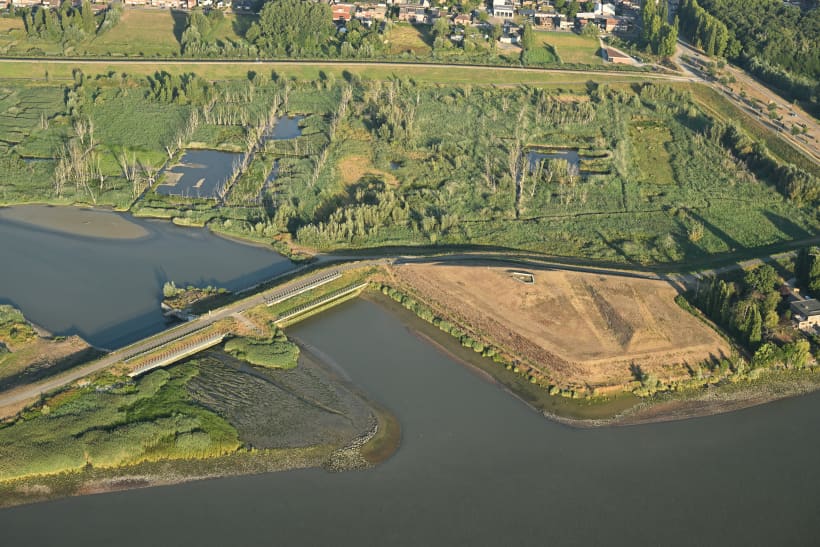Resilient Water Management
Flanders is home to major world ports and a large inland navigation network, and is therefore among the world’s top water infrastructure, technology and research centres. But we are also committed to water management, protection and smart use of hydropower. This is the only way we can ensure the reliability, security and capacity of our network. To further develop our partnership with water, we are open to international expertise.

Objectives
To harness the power of water in Flanders, we need to:
- Stap 1
Apply water control
for water safety (flooding limits) and water availability (drought problems), and allow space for nature - Stap 2
Organise inland navigation as efficiently as possible
including by increasing its competitiveness and raising the capacity of our waterways - Stap 3
Literally harness the power of water
hydropower plants and pumping plants at locks
A future-proof water system

We are taking numerous measures to achieve a more robust water system. One of these is the Sigmaplan, which protects Flanders from flooding of the Scheldt and its tributaries during storm tides. At the same time, it restores typical river nature. That is a major advantage for (water) recreation and the local economy. In turn, the Blue Deal focuses on water availability, in the fight against drought. Finally, we are also constructing locks with special pumping systems. These maintain canals during periods of water scarcity and generate green power during periods of water surplus. This combination of pumping plant and hydropower station is unique in the world.
Finding new (water) ways together
For some time now, we have been working with international partners on water, like in the Polder2C’s project. Together with the UK, the Netherlands and France, we researched how we can protect our coasts from the effects of climate change. We also share our knowledge in international organisations, such as the Rhine Navigation Commission (CCNR), UNECE, PIANC and the Mekong River Commission. We also like to learn from others, so that we can further develop our approach.